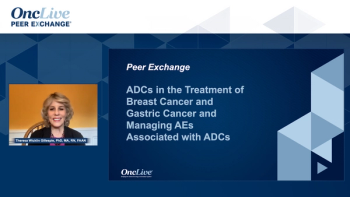
Comprehensive insight to the selection and education of patients for whom ADC therapy is an option in breast or gastric cancers, with regard for pulmonary risk status.
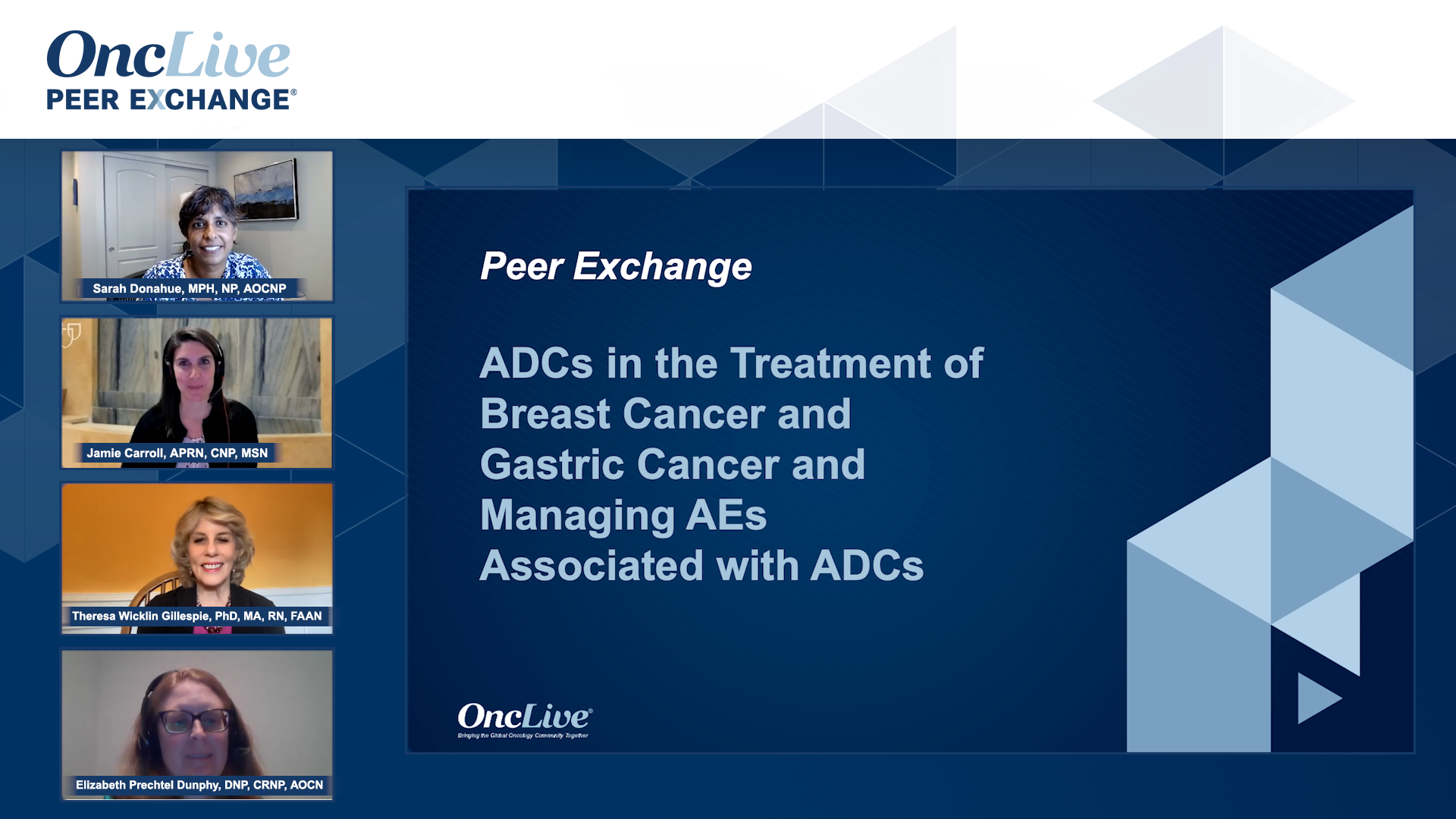

Comprehensive insight to the selection and education of patients for whom ADC therapy is an option in breast or gastric cancers, with regard for pulmonary risk status.
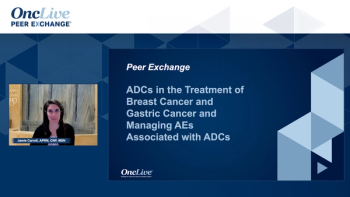
Focused conversation on the occurrence of interstitial lung disease in patients on antibody drug conjugate therapy for breast or gastric cancers.

Hearing loss for cancer survivors is largely underreported, but once identified, is easily treatable, according to Christine Miaskowski, PhD, RN.
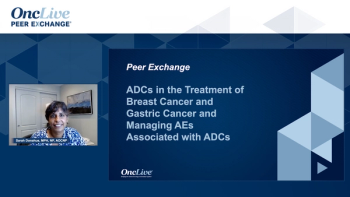
Contextualizing the use of T-DXd in breast cancer and gastric cancers respectively, panelists highlight optimal management of adverse events in these settings.
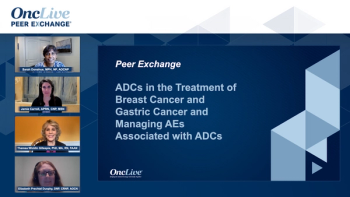
After reviewing the historical use of ADCs, panelists discuss the first patient profile of HER2+ metastatic breast cancer managed with trastuzumab deruxtecan.

At the 6th Annual SONO meeting, Kelley A. Rone, DNP, RN, AGNP-C, reviewed evidence supporting molecular testing in patients with colorectal cancer.

Kelley A. Rone, DNP, RN, ADNP-c, highlights the pivotal trials assessing the role of immunotherapy in gastrointestinal cancer and what the findings may mean for oncology nurses.

Kelley A. Rone, DNP, RN, AGNP-c, discusses the advantages associated with immunotherapy in the treatment of patients with gastrointestinal cancers.

An analysis of patient-reported outcomes from the phase 3, INTRIGUE trial (NCT03673501) showed that ripretinib had a more tolerable safety profile than sunitinib in treating patients with advanced GIST tumors.

In early-stage cancers, ctDNA has a role in screening, neoadjuvant monitoring, identification of molecular residual disease (MRD), molecular relapse monitoring, and early assessment of treatment response.

Lidia Schapira, MD, FASCO, discusses the importance of rigorous baseline measurement in improving the assessment and management of distressful cancer symptoms.

Arndt Vogel, MD, PhD, discusses a post-hoc analysis of the phase 3 HIMALAYA trial which found tremelimumab plus durvalumab to be superior to sorafenib in improving overall survival.

In this episode of The Vitals, Lidia Schapira, MD, FASCO, recounts highlights from the 2022 ASCO Symptoms and Survivorship track and underscores key takeaways for practitioners seeking to enhance the delivery of cancer survivorship care.

An expert of gastrointestinal oncology with the Henry Ford Cancer Institute discusses the developing presence of targeted treatments in the pancreatic cancer treatment paradigm.

A subgroup analysis found that the addition of durvalumab to chemotherapy resulted in maintained overall survival benefit in patients with advanced biliary tract cancer, regardless of primary tumor location.

Data from the phase 2 MOUNTAINEER trial showed durable responses with tucatinib plus trastuzumab for patients with previously treated metastatic HER2-positive colorectal cancer.

The addition of the HER2-Vaxx vaccine to chemotherapy resulted in 41.5% reduction in the risk of death compared with chemotherapy alone among patients with gastric cancers.

Data from the CheckMate 648 trial informed the FDA’s recent approval of 2 nivolumab combinations for esophageal squamous cell carcinoma. A 1-year follow-up analysis highlighted key safety and time-to-event data surrounding immune-related toxicities.

The FDA approval of dabrafenib plus trametinib for BRAF V600E–mutated unresectable or metastatic solid tumors highlights a potential need for routine BRAF testing in clinical practice, experts say.

Aliènne Salleroli, MS, BSN, RN, OCN, underscores the importance of open dialogue surrounding diversity, equity, and inclusion in oncology leadership.

Phase 3 findings showed that panitumumab plus mFOLFOX significantly improved overall survival in patients with RAS wild-type metastatic colorectal cancer.

Ken Kato, MD, PhD, a medical oncologist at the National Cancer Center of Tokyo, and investigator in the pivotal CheckMate 648 study, underscores relevant safety data updates from the trial and important symptom management considerations with the FDA-approved combinations.

At data cutoff, all treated patients in a phase 2 trial experienced a clinical complete response with single-agent dostarlimab-gxly.

Panitumumab with mFOLFOX demonstrated a clinical benefit for patients with left-sided RAS wild-type metastatic colorectal cancer in the PARADIGM trial (NCT02394795).

Patients with KRAS wild-type pancreatic cancer elicited a significant survival benefit with the addition of nimotuzumab to gemcitabine vs placebo plus gemcitabine in a phase 3 trial.